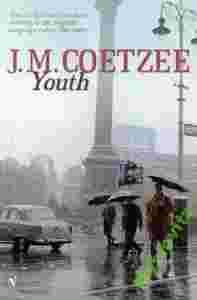|
"Youth"
J. M. COETZEE
Pages: 169
Stan: dobry
J. M. Coetzee, a well-known prize winning writer, turns his attention to his own life in Youth: Scenes from Provincial Life II, his second memoir. In his first memoir, Boyhood (1997), Coetzee relates his early years in South Africa. Youth opens with the young Coetzee planning his move to London, a move that represents a rejection of and escape from his family and all things South African. When he arrives in the city, however, he finds himself no more able to fit in to English life than he was able to find a niche in South Africa. Intending to write a thesis on the works of Ford Maddox Ford, he instead finds himself working for IBM in the suburbs.
Set in the 1960’s, Youth offers a portrait that is neither flattering nor endearing. Choosing to use a third-person narrator, Coetzee distances himself from his younger self, using language that is both spare and revealing. The narrator is at times vain, considering himself the intellectual superior of those around him, and at times pathetic, unable to overcome his isolation and his fear of commitment to other people. As he writes, “If he were a warmer person he would no doubt find it all easier: life, love poetry. But warmth is not in his nature.” In particular, the narrator’s lack of warmth as a lover troubles both himself and the reader. Further, although the reader knows that Coetzee eventually finds himself, the book closes without optimism for the future, as the narrator bleakly asserts that the “ambulance men” he foresees coming to cart away his friend Ganapathy “might as well come and fetch him too.”
Vintage Books
|

